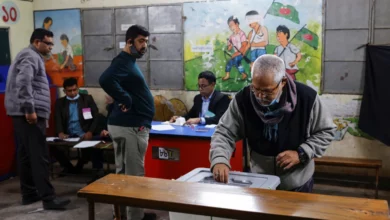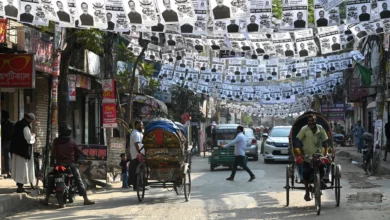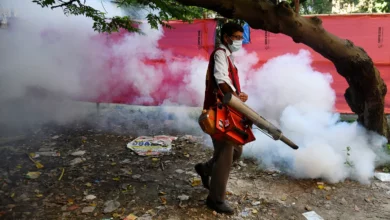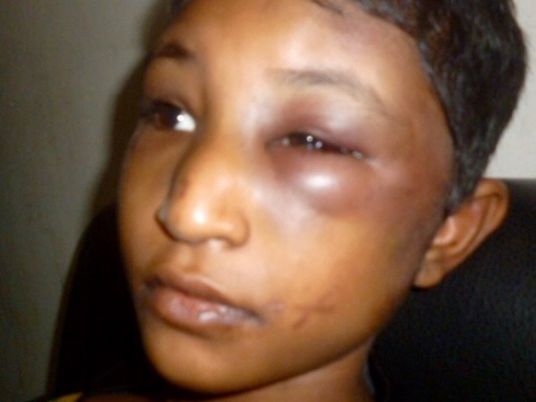
She's known as "Happy" but when Mahfuza Akhter was found bruised and crying in the streets of Dhaka she was anything but.
The 11-year-old former live-in maid of one of Bangladesh's cricketing heroes is at the center of perhaps the biggest celebrity trial the country has ever seen.
She claims that she was abused by international cricket star Shahadat Hossain and his wife, Nritto Shahadat, while working in their home.
"They used to beat me with sticks, kitchen utensils, punch me, and scratch me. I would be slapped a lot," she says, pointing to a distinct scar on her face.
Hossain and his wife are both in police custody, charged with child repression and employing a minor. Hossain's lawyer says he is innocent and that he wasn't home the day Happy ran away.
The lawyer refused to comment on behalf of his wife but on December 1 Shahadat was granted temporary bail on humanitarian grounds as she has a young baby.
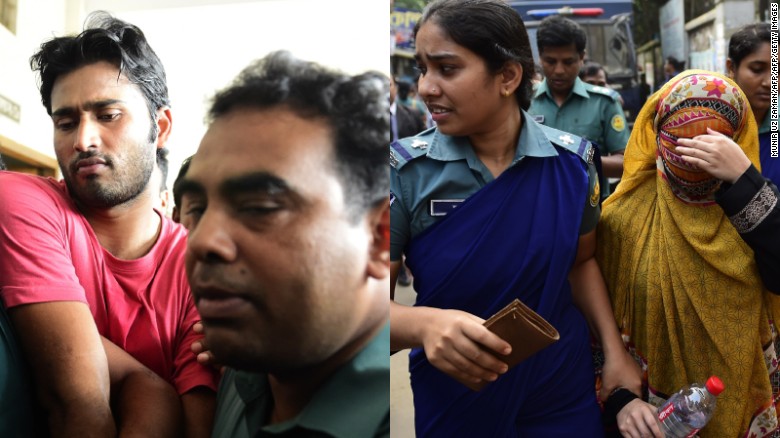
Shahadat Hossain and his wife, Nritto Shahadat, are escorted by security to court appearances in October.
Happy's story
The young maid says she was sent to work in the couple's home by her grandmother. She doesn't know where her parents are, but said her extended family needed the money.
"My uncle had no job, my grandmother was sick, we didn't have any money. There was no option but to send me to the house to work," she told CNN.
She says she was locked in their home and forced to sleep in the bathroom. "They wouldn't give me proper food. They'd usually give me leftovers or food that had gone bad," she said.
She was looking for a chance to escape; she had made up her mind that she would rather beg on the streets than live in the home.
Happy says she decided to take a chance when the couple's other servant opened the door. "When the house maid came inside the house, she opened the door. While the door was open, I ran out of the house."
She says she couldn't run very fast, and was limping.
"I was in a lot of pain. While I was walking on the road, people were staring at me. I covered my eye because it was bruised and it was hurting. At one point, I got exhausted and I sat down by the side of the road."
It was there a local journalist, Mojammel Hossain, says he found her and took her to hospital, and Bangladesh police were alerted to her claims.
"The girl had substantial injuries — several parts of her body were dislocated, she had swollen eyes, and was bruised extensively," Bangladesh Police Inspector General Nazrul Islam told CNN.
Police issued an appeal for Hossain and his wife after both fled their Dhaka home. Officers carried out raids at various locations, including Hossain's ancestral village and his father-in-law's residence.
Four weeks later, police arrested Hossain's wife at her parent's house in Dhaka, and the next day Hossain turned himself in. The couple soon appeared in court but were denied bail.
A Bangladeshi hero
The allegations made against Hossain and his wife have shocked Bangladesh — especially the younger generation, many of whom consider him a hero.
The 29-year-old fast bowler made his debut for the national team in 2005, and has gone on to play in 36 Test matches and 51 One Day Internationals for his country.
He has taken more than 100 wickets across both versions of the game, and is the only Bangladeshi bowler to be listed on the Lord's Honour's Board — a respected achievement for a cricketer.
The Bangladesh Cricket Board has since suspended Hossain from all forms of cricket until further notice.
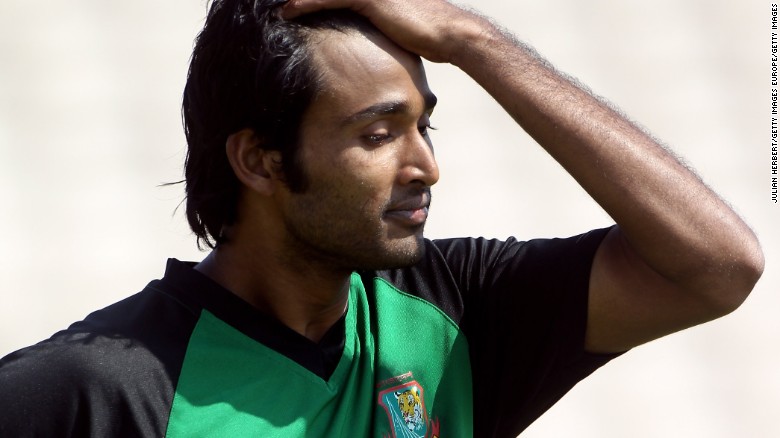
Shahadat Hossain pictured training at Old Trafford on June 3, 2010 in Manchester, England.
Child labor
Rights activists say underage child labor is an all too common a problem in Bangladesh, a country of 156 million people and the eighth most populous in the world.
Under Bangladesh's Labor Act, passed in 2006, it's illegal to employ children under the age of 14.
As of that year, around 13% of Bangladesh's children aged between five and 14 were believed to be engaged in child labor.
Around 421,000 of those children — mostly girls — work as domestic help.
"In our history books, (we read about) the slaves, bonded labor, forced labor, but it is (still) going on — (many young girls) do not have freedom, they have no childhood," Salma Ali, an advocate, and the president of Bangladesh National Women Lawyers' Association said.
Happy is staying at a shelter the association runs, where Ali and Happy agreed to talk to CNN.
Robin Abdullah Chowdhury, a social activist in Dhaka, said many other young girls working as domestic help are also abused.
"The underage domestic helpers have absolutely no idea what they are signing up for. They somehow end up in these houses without having a choice. No labor laws are applied to these children in most of the houses," said Chowdhury, who heads Sporshok, an organization which aims to raise awareness of the most ignored and vulnerable people in society.
Chowdhury said that the high numbers of child laborers could be traced back to traditional beliefs about children's role in supporting older generations. "The cultural ideology that the more children you have, the more financially secure family is also is a major factor behind child labor issue in Bangladesh."
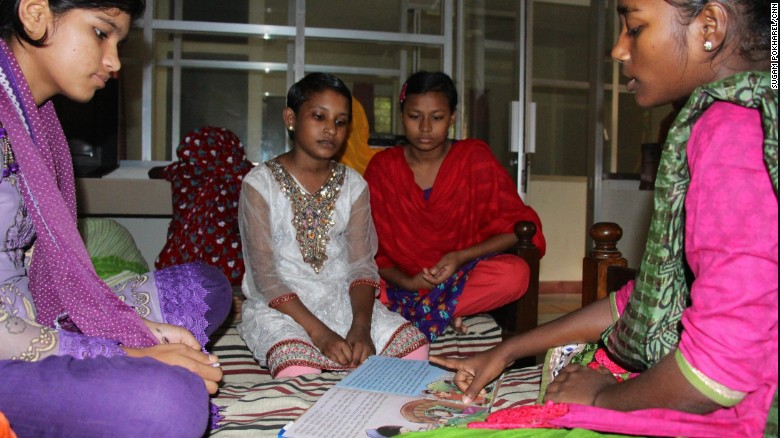
Happy is looking forward to a new life in the shelter where she's meeting new friends.
A new life
Back in the shelter, Happy says she had feared she'd be living in the house forever. She's not angry with her grandmother, who suggested she take the job.
"I realized that my family needed money, and that I didn't have a job to support them. So, I agreed to work by myself — nobody had to push me to even think about it."
Asked what she wants to do when she grows up, she says with a smile, "I want to go to school, I want to go to college and then become an actress."


